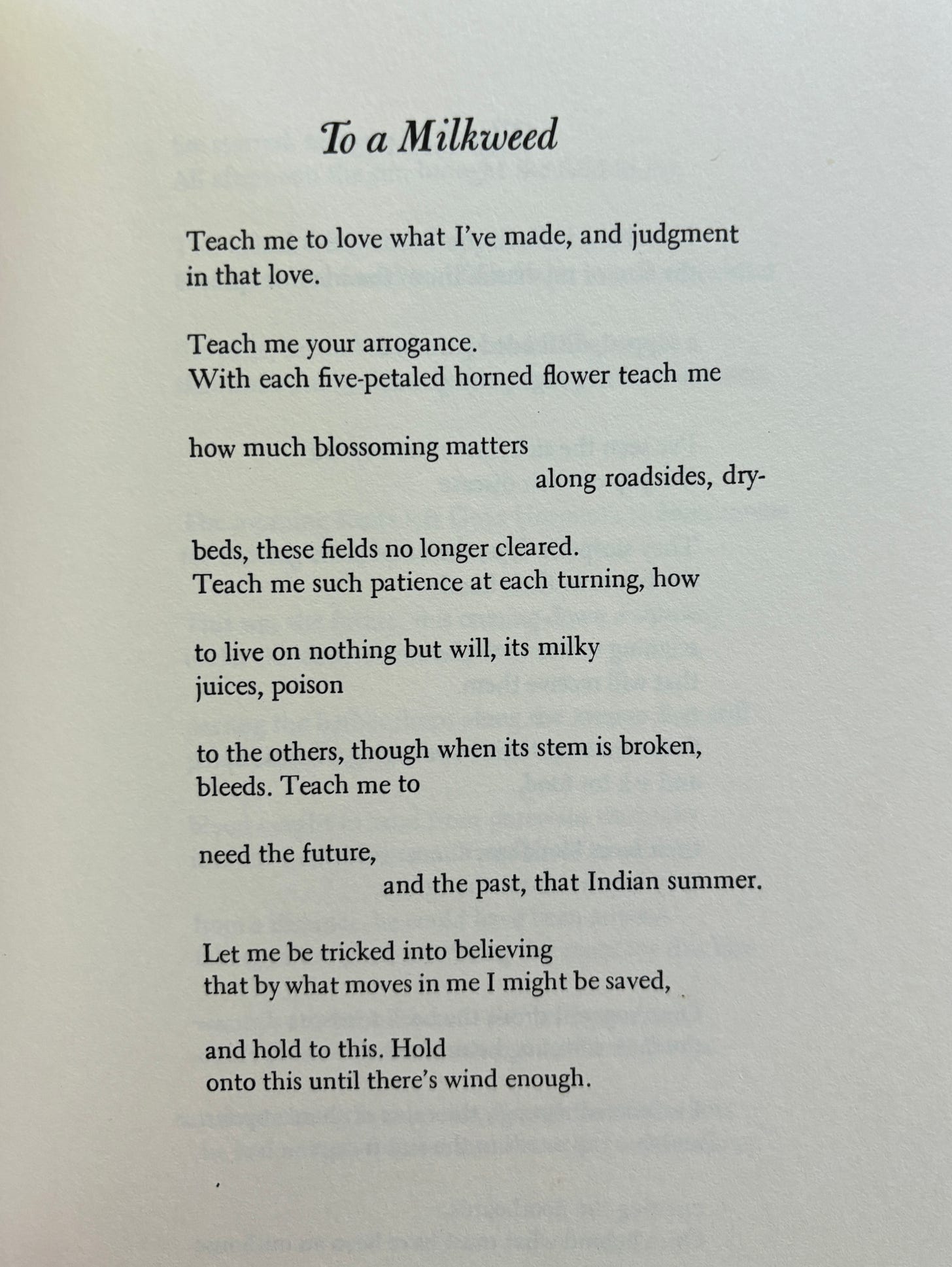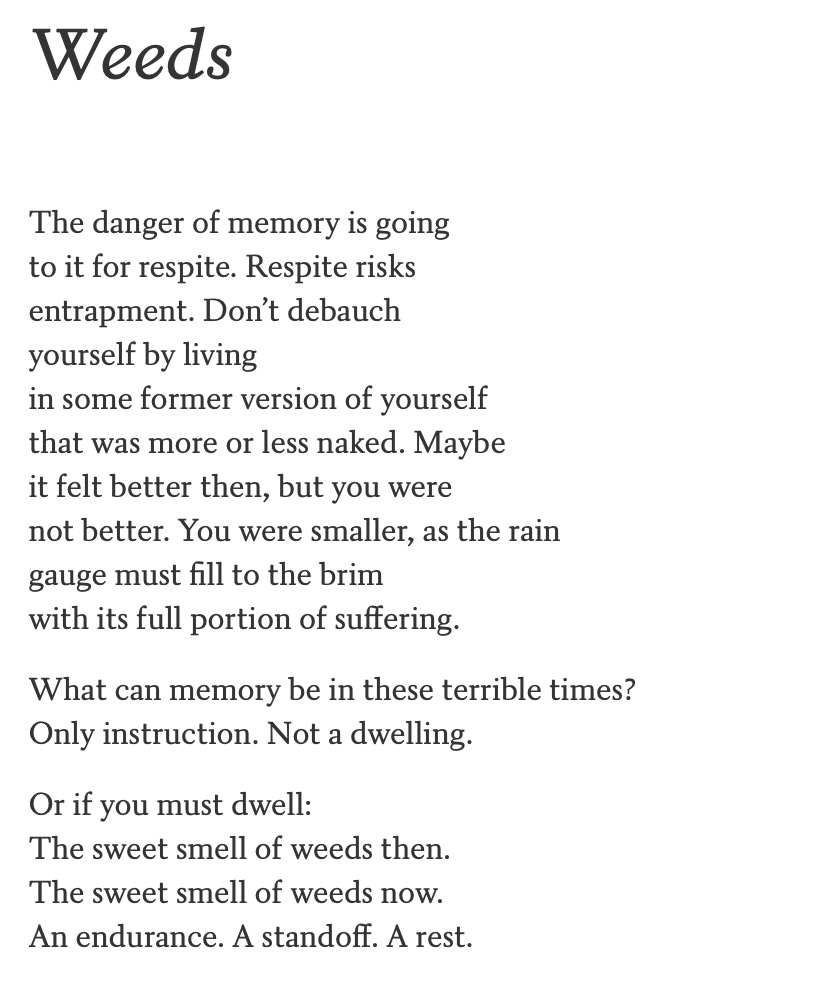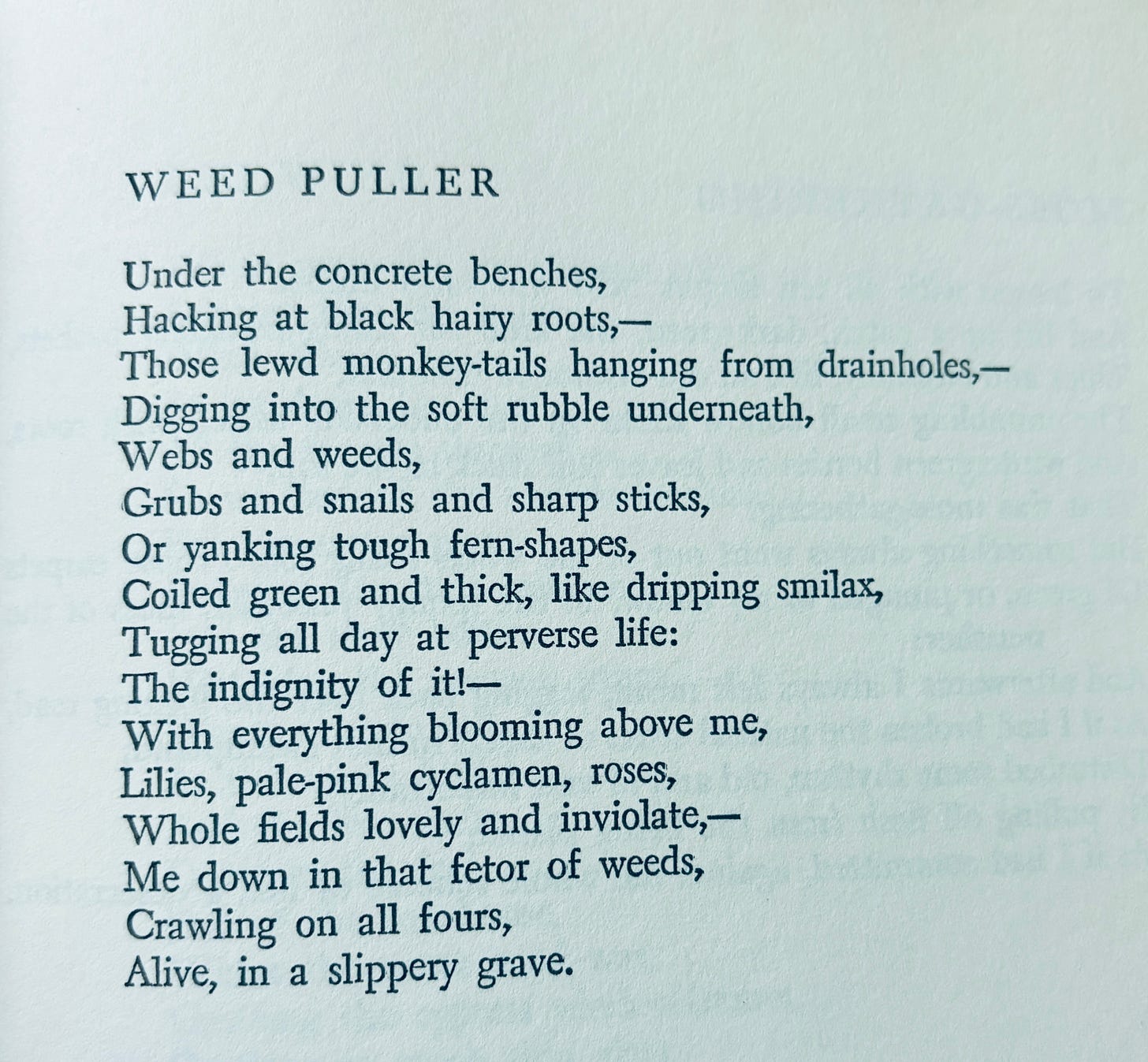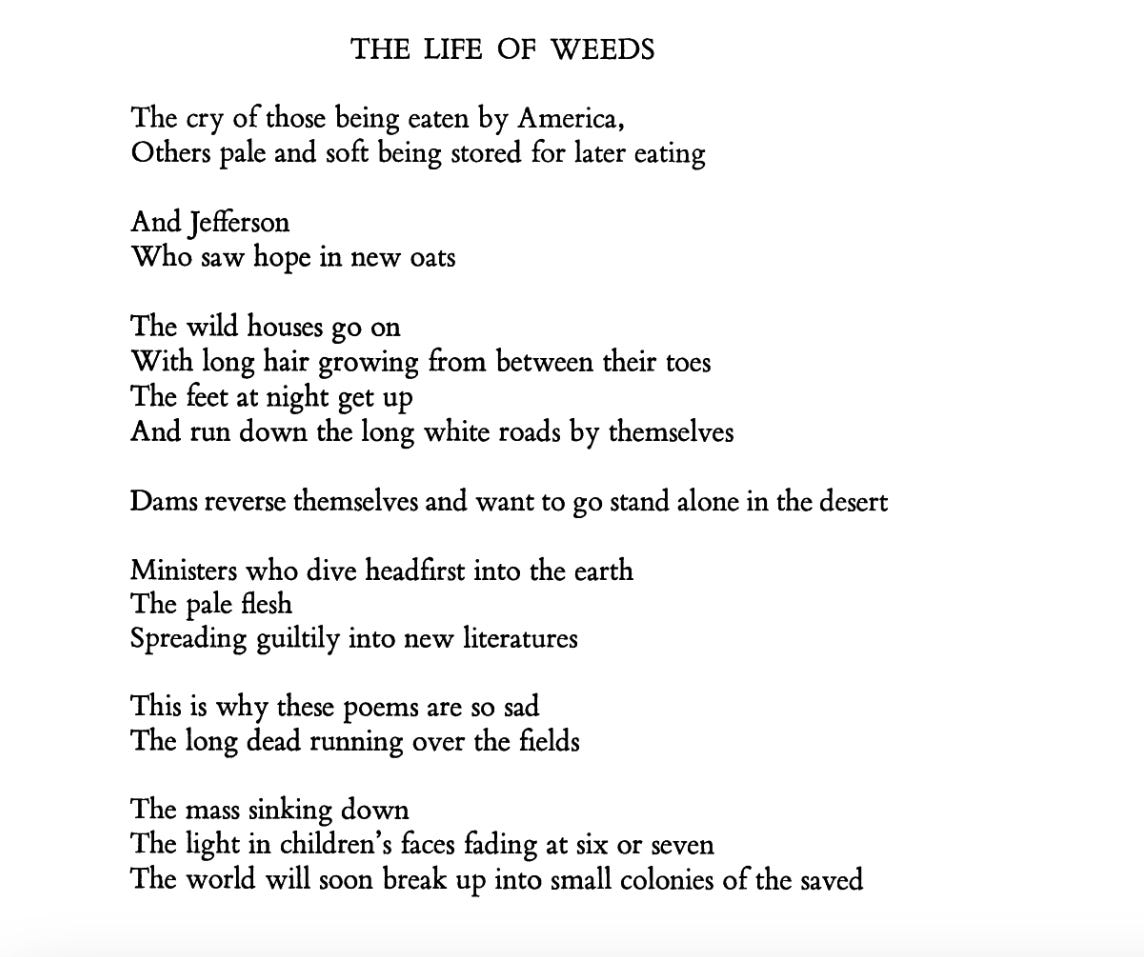Deborah Digges:
Stanley Kunitz:
Diane Seuss:
The Sharpener is a reader-supported newsletter. If you get value from these newsletters and want to support my work I encourage you to take out a paid subscription.
Theodore Roethke:
Robert Bly:
About Sean Singer
Sean Singer Editorial Services
Subscribe to The Sharpener
The paid-subscriber version of The Sharpener includes weekly installments of craft pieces, approaches to writing problems, topics in contemporary publishing for writers, and biographical features on poets I consider important.
The Sharpener is a reader-supported publication. To receive new posts and support my work, consider becoming a free or paid subscriber.







L
Luxurious man, to bring his vice in use,
Did after him the world seduce,
And from the fields the flowers and plants allure,
Where nature was most plain and pure.
He first enclosed within the gardens square
A dead and standing pool of air,
And a more luscious earth for them did knead,
Which stupified them while it fed.
The pink grew then as double as his mind;
The nutriment did change the kind.
With strange perfumes he did the roses taint,
And flowers themselves were taught to paint.
The tulip, white, did for complexion seek,
And learned to interline its cheek:
Its onion root they then so high did hold,
That one was for a meadow sold.
Another world was searched, through oceans new,
To find the Marvel of Peru.
And yet these rarities might be allowed
To man, that sovereign thing and proud,
Had he not dealt between the bark and tree,
Forbidden mixtures there to see.
No plant now knew the stock from which it came;
He grafts upon the wild the tame:
That th’ uncertain and adulterate fruit
Might put the palate in dispute.
His green seraglio has its eunuchs too,
Lest any tyrant him outdo.
And in the cherry he does nature vex,
To procreate without a sex.
’Tis all enforced, the fountain and the grot,
While the sweet fields do lie forgot:
Where willing nature does to all dispense
A wild and fragrant innocence:
And fauns and fairies do the meadows till,
More by their presence than their skill.
Their statues, polished by some ancient hand,
May to adorn the gardens stand:
But howsoe’er the figures do excel,
The gods themselves with us do dwell.
Marvell, the Mower Against Gardens
...I've never copied a whole poem into a comment here before and don't plan on making a habit of it, but I couldn't resist here...